On the fringes of war
If you're into fiction about the Second World War there's plenty to choose from, and much of it is very good. There's serious fiction about the Russian Front including Grossman's captivating Life and fate, and Helen Dunmore's bleak study of life in Leningrad under siege conditions The siege; lighter but nonetheless moving reads include the sequel to Birdsong Charlotte Gray, and the lyrical Fair stood the wind for France, while the war in the Far East is represented by such stunning reads as J.G. Ballard's Empire of the sun, and the other J.G. (this time Farrell)'s wonderful The Singapore grip.
Lesser known, but brilliantly well written is Olivia Manning's humungous wartime sequence The fortunes of war, brilliantly dramatised by the BBC in the 1980s starring the golden couple of the time Kenneth Branagh (congratulations Sir Ken on the recent knighthood) and Emma Thompson. Consisting of six books divided into two trilogies - the Balkan trilogy containing The great fortune, The spoilt city and Friends and heroes, and the Levant trilogy which includes The danger tree, The battle lost and won, and The sum of things - Fortunes of war follows the lives of a disparate group of characters initially settled in Bucharest on the fringes of war-torn Europe.
Guy and Harriet Pringle arrive in Bucharest, where Guy is an English lecturer, just as war breaks out in Europe. Newly married they are still adjusting to life with each other and are thrown into both this new way of life, and the changing mores of a Europe in flux. As the Axis powers sweep across Europe the Pringles are forced to evacuate to Greece, and (at the end of the Balkan trilogy) further east to Egypt. In many ways the war, while living in Rumania, was seen at a remove. Here in Egypt, the war is much closer, and the day to day peaceful stultifying life of the civilian population is contrasted with the all-too-real war going on 40 miles away in the desert.
Based to quite a large extent on Manning's own wartime experiences - she was married to an English lecturer (who apparently was recruited by Anthony Blunt as a Russian spy!) - the Balkan trilogy is a fabulous piece of writing : funny, moving, at times scary, and completely believable. Manning builds a wonderful empathy with her characters, especially Harriet, the wife caught up in events. The Levant trilogy written some years later works rather less well.
Much of the trilogy contrasts the odd life, lived on the edge, of the British civilian population with the brutal war that is being fought out in the desert. The central characters remain the same, although the large supporting cast is largely rebuilt with new characters. It has a strange other-worldliness about it that doesn't altogether work. The believability of the earlier volumes is missing, and the writing flows much less smoothly.
Manning has also been criticised for her portrayal of foreigners (although she has also been praised for her portrayal of pre-war Romania). A certain amount of xenophobia does come across - especially in the Levant trilogy - but, to be fair, I think this is a reflection of the attitudes of the period. And she is not, for example, critical of the aspirations of the Egyptians towards national determination even when this is presented in a rather bizarre way - such as the botched assassination attempt of a British minister, which ends in a blackly comic way.
For a look at life during the Second World War seen from an unusual angle, and largely from a civilian perspective, this is one of the best reads you could have, and the Balkan trilogy is completely wonderful.
Lesser known, but brilliantly well written is Olivia Manning's humungous wartime sequence The fortunes of war, brilliantly dramatised by the BBC in the 1980s starring the golden couple of the time Kenneth Branagh (congratulations Sir Ken on the recent knighthood) and Emma Thompson. Consisting of six books divided into two trilogies - the Balkan trilogy containing The great fortune, The spoilt city and Friends and heroes, and the Levant trilogy which includes The danger tree, The battle lost and won, and The sum of things - Fortunes of war follows the lives of a disparate group of characters initially settled in Bucharest on the fringes of war-torn Europe.
Guy and Harriet Pringle arrive in Bucharest, where Guy is an English lecturer, just as war breaks out in Europe. Newly married they are still adjusting to life with each other and are thrown into both this new way of life, and the changing mores of a Europe in flux. As the Axis powers sweep across Europe the Pringles are forced to evacuate to Greece, and (at the end of the Balkan trilogy) further east to Egypt. In many ways the war, while living in Rumania, was seen at a remove. Here in Egypt, the war is much closer, and the day to day peaceful stultifying life of the civilian population is contrasted with the all-too-real war going on 40 miles away in the desert.
Based to quite a large extent on Manning's own wartime experiences - she was married to an English lecturer (who apparently was recruited by Anthony Blunt as a Russian spy!) - the Balkan trilogy is a fabulous piece of writing : funny, moving, at times scary, and completely believable. Manning builds a wonderful empathy with her characters, especially Harriet, the wife caught up in events. The Levant trilogy written some years later works rather less well.
Much of the trilogy contrasts the odd life, lived on the edge, of the British civilian population with the brutal war that is being fought out in the desert. The central characters remain the same, although the large supporting cast is largely rebuilt with new characters. It has a strange other-worldliness about it that doesn't altogether work. The believability of the earlier volumes is missing, and the writing flows much less smoothly.
Manning has also been criticised for her portrayal of foreigners (although she has also been praised for her portrayal of pre-war Romania). A certain amount of xenophobia does come across - especially in the Levant trilogy - but, to be fair, I think this is a reflection of the attitudes of the period. And she is not, for example, critical of the aspirations of the Egyptians towards national determination even when this is presented in a rather bizarre way - such as the botched assassination attempt of a British minister, which ends in a blackly comic way.
For a look at life during the Second World War seen from an unusual angle, and largely from a civilian perspective, this is one of the best reads you could have, and the Balkan trilogy is completely wonderful.

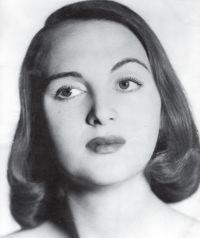
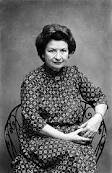

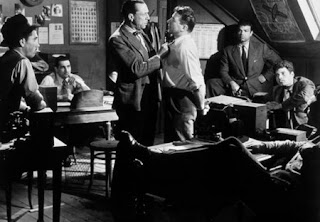

.jpeg)

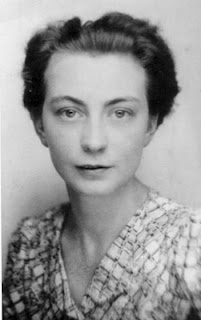
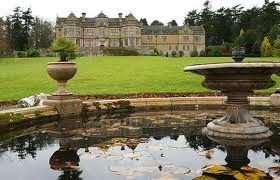
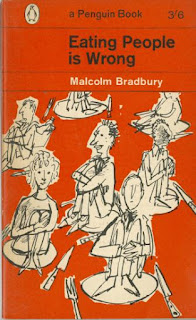
Comments